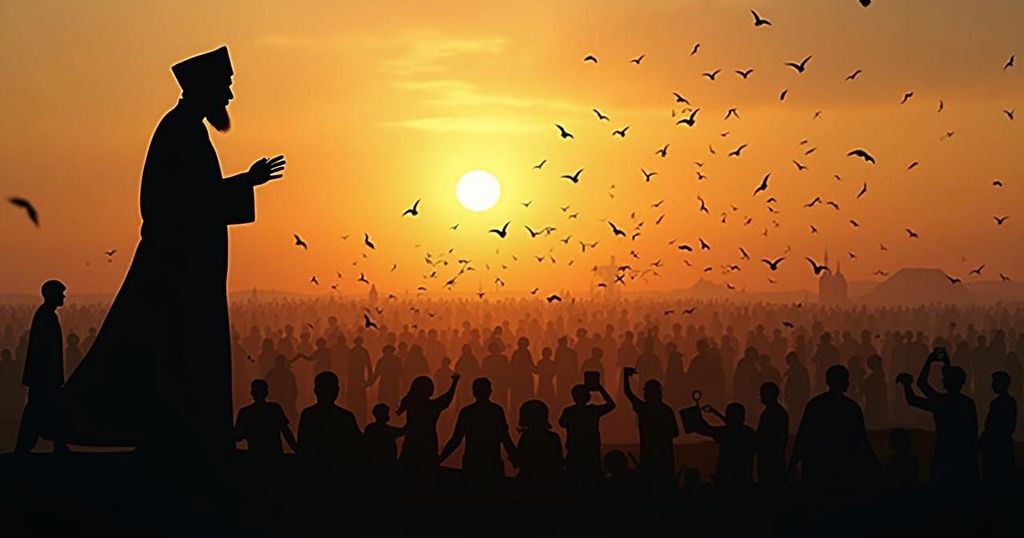The conflict in Sudan has escalated due to rising tensions between the military and the RSF, centered around the integration of the RSF into national armed forces. General Hemedti’s leadership has positioned him as a dominant figure, reflecting historical grievances and the complex power dynamics at play in Sudan’s political landscape.
The ongoing conflict in Sudan has intensified as armed clashes in Khartoum have resulted in numerous fatalities amidst rising tensions between the military and the Rapid Support Forces (RSF), a formidable paramilitary organization. This discord is primarily fueled by a stalemate concerning the integration of the RSF into the national armed forces, a pivotal condition of a transition agreement that, while never formally ratified, had been tacitly honored by the parties since 2021. General Mohamed Hamdan Dagolo, commonly referred to as Hemedti, commands the RSF and is a central figure in the escalating civil unrest, mirroring his role in critical junctures of Sudan’s turbulent history. The RSF, largely comprised of Darfurian Arabs known as Janjaweed, has rapidly evolved into a dominant force in the political arena of Khartoum within just a decade. Hemedti’s rise epitomizes the complex dynamics of Sudan’s power struggles, as he transitioned from a marginalized figure from the peripheries of Sudan to a significant player in its capital’s political landscape. His origins trace back to a family associated with camel herding and the historical insurgency in Darfur, marking his unpredictable path from school dropout to military commander. Despite lacking formal education, Hemedti’s military aptitude led to his elevation within the ranks of the Sudanese army, particularly through his alliance with government forces that ultimately secured him a favorable position and substantial resources. Following the ousting of President Omar al-Bashir in 2019, Hemedti adeptly positioned himself as a leader amidst the young demonstrators clamoring for change, while simultaneously consolidating his military and economic power. Through strategic dealings that encompassed lucrative military contracts and control over critical economic resources, such as gold mines, Hemedti transformed the RSF into a formidable military entity. This effectively placed the RSF in a position to exert dominance, overshadowing the diminishing capabilities of the traditional Sudanese state military. The prevailing tension can be traced back to historical grievances, as the traditional political elite of Sudan, primarily hailing from the riverain regions, have long feared the emergence of leaders from marginalized backgrounds. Hemedti’s ascent and the ongoing unrest symbolize not only a clash between established powers and new forces but also highlight the retribution felt by historically excluded communities in Sudan. This complex entanglement of power dynamics has fundamentally altered the political landscape, suggesting that the seeds of conflict sown in the early 2000s have now returned to sow chaos within the capital. In summary, the conflict in Sudan represents a culmination of historical injustices and the emergence of new power players, with Hemedti at the fore. His journey from the peripheries to the core of Sudanese politics encapsulates the volatility of the situation and the potential for further escalation if underlying issues are not addressed effectively.
The current conflict in Sudan arises primarily from tensions between the official military and the RSF, which have escalated into armed confrontations in the capital, Khartoum. This discord centers around unresolved issues concerning the integration of the RSF into the national armed forces, tied to a transitional agreement dating back to a political transition in 2021. General Hemedti’s leadership of the RSF, alongside the group’s historical roots and rapid ascent in power, exemplifies the broader issues of marginalization and political exclusion in Sudan’s society.
The situation in Sudan is indicative of deeper-rooted historical patterns of exclusion and conflict that have resurfaced as different factions vie for control. Hemedti has emerged as a pivotal figure who embodies both the aspirations and the fears of various groups within the country, marking a significant shift in the balance of power. The need for reconciliation and addressing grievances is paramount to prevent further deterioration of the situation.
Original Source: www.thedailystar.net







